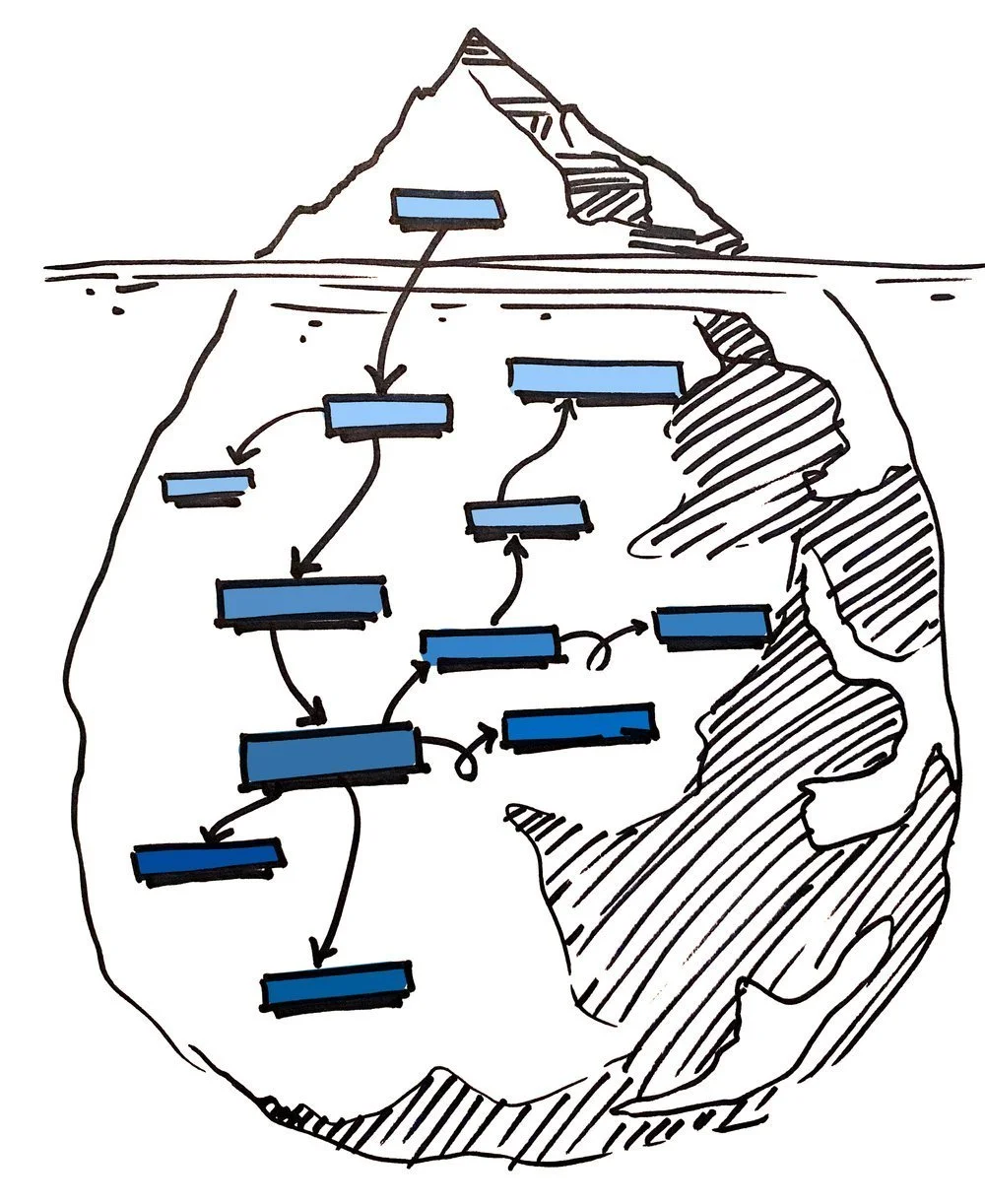Navigating the Iceberg: A Framework for Asking Facilitative Questions
Someone asked me once, “Can you facilitate without markers?” “Sure,” I said. “But don’t ask me to facilitate without questions.”
Questions are the most powerful tool consultants, coaches, and facilitators have to move groups. Period. Questions guide groups through exploration and reflection. Questions inspire deep thinking and action. A well-crafted question can shift dynamics, expand minds, and move groups to consider new possibilities and make decisions together.
The wrong question can shut down participation, alienate or offend people, destroy trust, and create power imbalances.
So what’s the best way to decide on the right questions to ask? Imagine you’re mapping an iceberg. Just like an iceberg, the most profound insights and ideas within our clients lie beneath the surface, awaiting discovery. To start, pose an open, top-of-iceberg question. These are safe, low-stakes, expansive questions that can steer groups in any direction. Examples include:
What’s happening?
What’s on your mind?
What’s going on?
What’s up?
Next, steer your line of inquiry further down the iceberg with deeper, more investigative questions:
What’s the reason behind that?
What might have caused that?
What could be happening there?
What impact is that having?
Why do you think that is?
Why might that be?
What else?
Your aim here is to guide the person answering to make personal discoveries and unveiling deeper layers of understanding.
Going even deeper down the iceberg, ask questions that involve metacognition (thinking about thinking.) These kind of questions assist others in observing their thought processes and reactions from a reflective perspective:
What’s your perception of that?
How does this affect you?
What’s important to you about this?
What story are you telling yourself about that?
You can also ask questions that carry the thinking across the iceberg, helping to advance their thinking and project forward into the future:
What does that mean to you?
What does it mean to the people around you?
What might the outcome of this situation be?
What might ANOTHER possible outcome be?
Who might it impact?
You can also double back on the iceberg, encouraging reframing, or looking at the situation from a different perspective:
What else might be going on here?
How might (the other person) see the situation?
Thinking about what you know for a fact about the situation, is there another way of looking at it?
What might the opportunities be in this situation?
How could you show up as your best self, given what’s happening?
When you hit rock bottom, where the people you’re working with don’t have an answer or resist further exploring, don’t worry! You can easily shift your approach by moving in a different direction on the iceberg. Ask if there’s anything more they want to say about the issue or transition onto something new.
The ultimate goal in both coaching and facilitation isn't always to find a solution or to take action. It can simply be to gain a new understanding.
Happy iceberg mapping!

